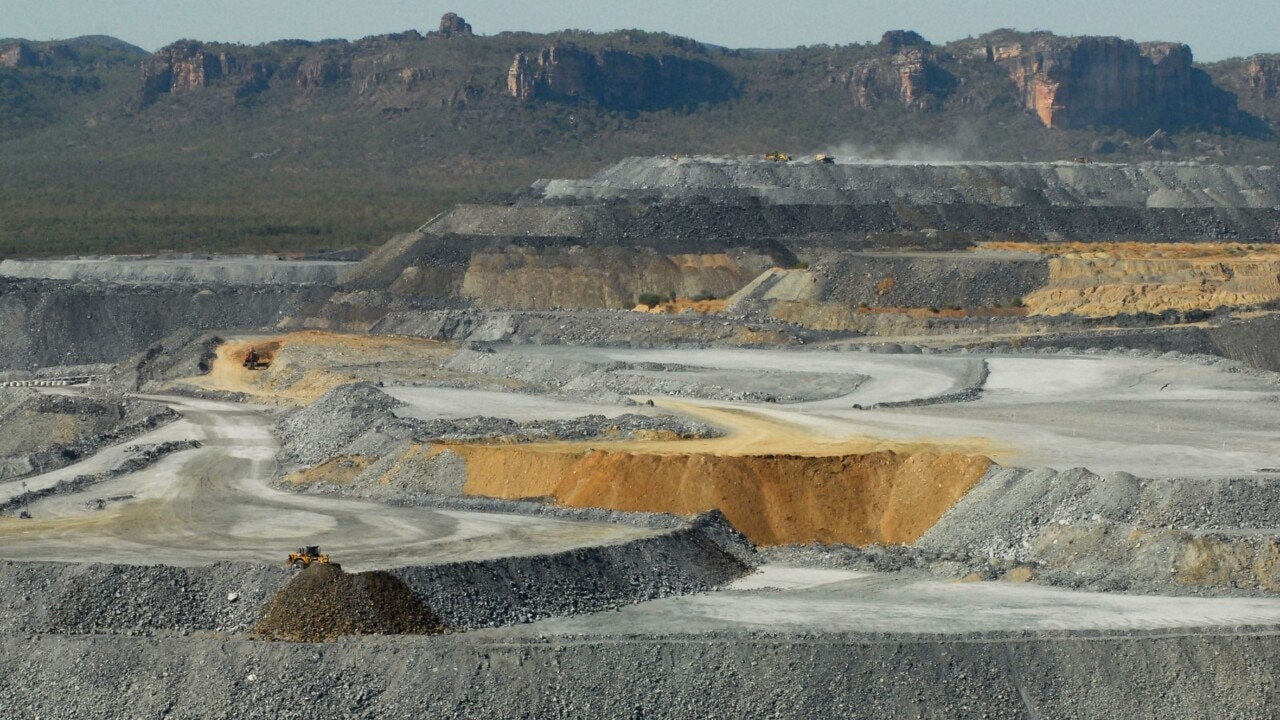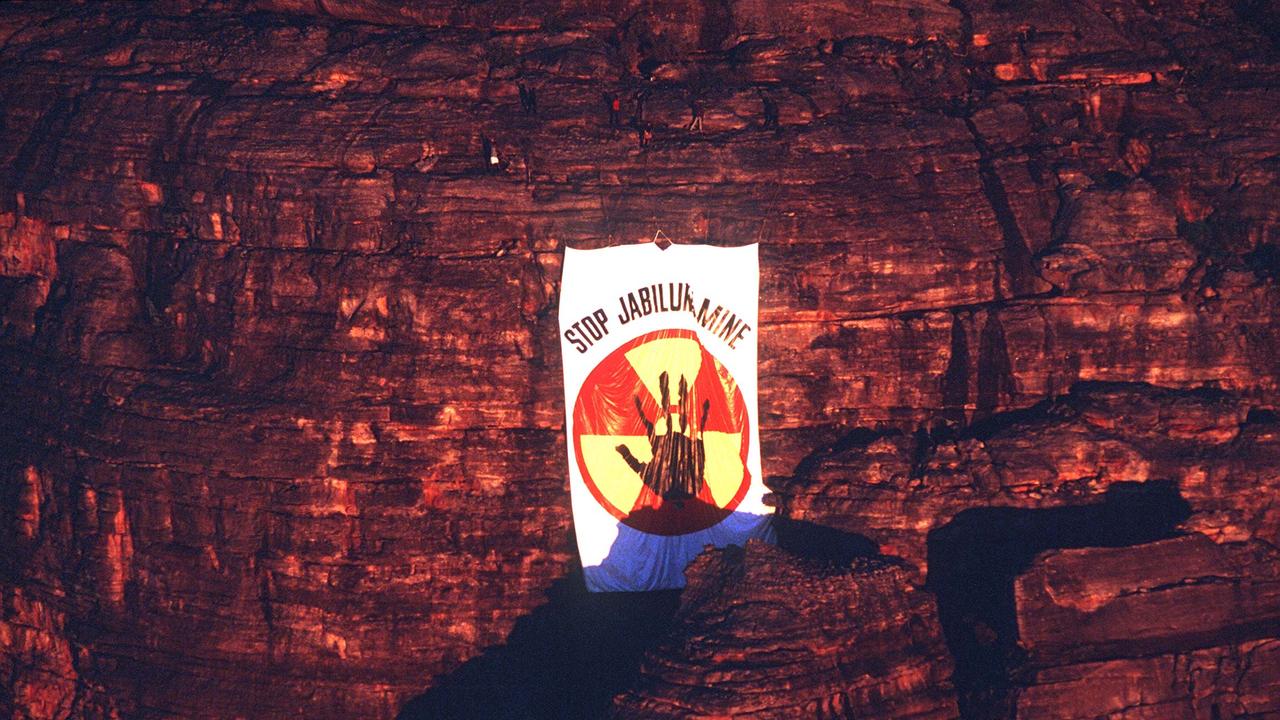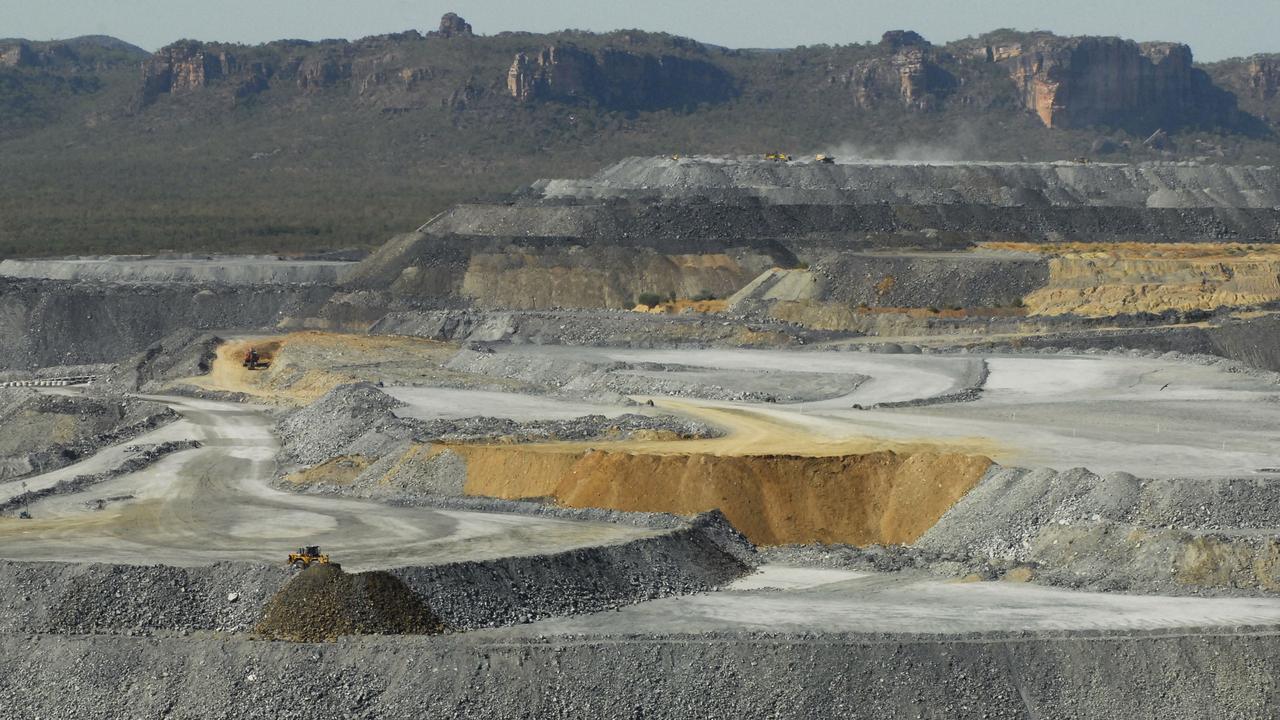Energy investor urges Kakadu traditonal owners to see the ‘bigger picture’, allow uranium mining in the Northern Territory
A fed-up energy investor has called on Indigenous leaders opposed to exploration in the Kakadu National Park to take “destiny into their own hands” and support the development of a uranium mine as the world turns to nuclear.

There is a renewed push to develop a controversial uranium mine in the Northern Territory as the world turns to nuclear energy to help reduce global emissions.
In a rare public interview, Richard Magides, whose company Zentree is the second largest independent shareholder in Energy Resources Australia, has made the environmental case for the development of the Jabiluka site on the edge of the Kakadu National Park.
“You’re talking about 10 per cent of the world’s uranium reserves, so I think it’s vitally important not just for the planet or the allies, but also for Australia,” Mr Magides said.
He pointed to last year’s United Nations Climate Change Conference (COP 28) which identified the important role nuclear power would play in achieving net zero by 2050.
“We’re already hitting one-and-a-half degrees in terms of climate change and if you’re going to lock away a strategic reserve like that forever, it seems very short-sighted,” he said.
“The world needs to transition away from carbon fuels. People have a great fear of nuclear energy but actually if you look at the facts, if you look at the statistics, it’s far safer and cleaner, you now, it’s 80 times safer than coal.”
Energy Resources Australia is majority-owned by Rio Tinto and holds the mining lease over the Jabiluka site.

The company has operated the nearby Ranger mine since 1980.
Mining ceased at Ranger in 2012 and the last of the stockpiled ore was processed in 2021.
ERA is now undertaking the mine rehabilitation process at Ranger that is due to be completed in 2026.
But the cost is a sore point for investors who have seen ERA’s share price fall from a peak of more than $3, to its current low of just three cents.
“Thousands of minority investors have put in over a hundred million dollars into rehabilitation at Ranger for zero reward at this point, so their voices haven’t really been heard,” Mr Magides said.
ERA has applied for a 10-year extension of the Jabiluka lease, which is due to expire on August 11.
But even if the extension is granted – a decision that ultimately rests with the Commonwealth - the company says it has no plans to mine at Jabiluka.
“ERA has a long-term care and maintenance agreement with the Mirarr Traditional Owners of the Jabiluka deposit that includes a veto over development unless approved by the Mirarr,” it said in a statement.
“ERA has protected the cultural heritage at Jabiluka for almost two decades so far under the agreement. The agreement and veto right only remain in place if ERA’s mining lease of Jabiluka is renewed.”

The Gundjeihmi Aboriginal Corporation, which represents the Mirarr traditional owners, doesn’t want the lease extended. It wants the Jabiluka site incorporated into Kakadu National Park.
“Who knows how long ERA will be around,” traditional owner Corben Mudjandi said in a statement provided by the GAC.
“ERA is in financial trouble and shareholders are fighting amongst themselves.
“We doubt whether such an old mining lease can be extended. Mirarr have always said we will never agree to mining at Jabiluka. This is sacred country and needs protection.”
The looming expiration of ERA’s lease set up a potential flashpoint, with a deadline that was due to land less than two weeks before the August 24 Northern Territory election.
In a move some suggest was designed to kill Jabiluka as a political issue ahead of the poll, the NT Government issued a temporary reservation order on June 5, preventing mining and exploration at the site for two years if ERA’s lease is not renewed by August 11.
“Currently we’ve made a decision that no other applicant can come in and put an application to mine, only the current lease arrangements that are there at the moment, until we go through the process,” NT Mines Minister Mark Monaghan said.
Last month the NT Government posted a record net debt of more than $11 billion.
Mr Magides said development at Jabiluka would deliver a huge financial windfall.
“It’s approximately worth about 50 billion, though in terms of what it would generate for Australia, we’re talking about billions of dollars in income for Australian taxpayers,” he said.

He said there was also a strategic imperative to develop the site, as the world pursues more nuclear energy.
“(Russian President Vladimir) Putin’s had this long-standing objective of essentially cornering the global energy markets,” he says.
“The largest other producer out there is Kazakhstan, so essentially if the allies are reliant on getting energy, particularly nuclear energy, from people related to Putin, it does put them in a compromising position.”
NT Chief Minister Eva Lawler has been a fierce advocate of the resources industry since taking the job last December, and has stated her top priority is to get all Territorians, particularly Aboriginal people, into work.
But it seems unlikely this will amount to support for mining at Jabiluka without the consent of traditional owners.
“I’ve met with the Mirarr people and they’ve made it very clear what they want to see in Jabiru and Kakadu,” she said.
In its statement the GAC quoted traditional owner Yvonne Margarula, who has fought uranium mining at Jabiluka for more than 30 years.
“Eva Lawler understands the Northern Territory. She respects Bininj culture,” she said.
“She and her Mines Minister have done the right thing for Kakadu National Park.
“This announcement gives us certainty about the future when the mining lease ends.”
But Mr Magides said he believed the Mirarr could be convinced of the economic and environmental benefits of mining at the 20-hectare Jabiluka site, which he said would only make up 0.001 per cent of the Kakadu National Park.
He said they had the opportunity “to take their destiny into their own hands”.
“They’ve obviously been quite vocal about being against mining and I can understand that but at the same time, what we’re talking about here is a much bigger picture,” he said.
“There may be no decent Kakadu National Park to protect if we allow the planet to continue to warm.”
Matt Cunningham, Sky News Northern Australia Correspondent, has worked as a journalist in the Northern Territory for more than 12 years. He is a former editor of the Northern Territory News.



